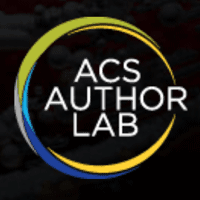Special Issues are an attractive feature of many journals, and from proposal to publication, Guest Editors are invaluable drivers of their success. To reinforce ACS Publications' commitment to maintaining the highest standards of publishing integrity, we review our details and policies regarding Special Issues and the defined role of the Guest Editor at ACS journals.

(Virtual) Special Issues have become one of the most popular avenues for highlighting specific topics or focus areas within the scope of a journal or portfolio. From increasing the visibility of newer or more niche research areas to honoring the achievements of an influential researcher, Special Issues allow journals to effectively bring an array of interesting topics to the forefront of their published work.
However, in recent years, Special Issues have become a topic of some controversy in scholarly publishing. Some publishers have turned to Special Issues as easy venues to exponentially expand their published output—at some journals, Special Issues might constitute up to 60-70% of published articles. Most concerningly, Special Issues have become a prime target for unethical and fraudulent publication activity, and the use of a Guest Editor model in which the journal editorial team is not involved in the peer-review process has made Special Issues increasingly vulnerable to paper mills, fake or “gifted” authorship, and other dubious publishing practices.
The recent delisting of more than 50 journals from Clarivate Analytics’ Web of Science and subsequent impact on trust and integrity within the research community should be of concern for authors, reviewers, readers, and Editors alike.
ACS Publications: Most Trusted.
At ACS Publications we believe Special Issues should be just that—Special—and present a unique opportunity for a journal to highlight articles on a specific topic without outnumbering its primary content. As such, Special Issues represent less than 10% of all ACS journals’ published output.
Furthermore, ACS Publications’ commitment to integrity remains constant: we maintain that it is essential to the advancement of chemistry and trust in scholarly publishing. Thus, we make sure that Guest Editors adhere to the highest standards of publishing integrity throughout the editorial process.
Guest Editors of Special Issues at ACS Journals act as a liaison between the journal and the community, but they do not oversee the peer review process of the manuscript; peer review and final decisions are solely handled by an ACS contracted Editor. In this way, we secure a thorough peer-review process, guarantee fairness and consistency for authors, and safeguard the integrity of articles published in our Special Issues.
To reinforce our commitment to maintaining high publication standards and dedication to publishing reproducible science, we have updated the ACS Researcher Resources with additional details and policies regarding Special Issues and the defined role of the Guest Editor at ACS journals. Several key requirements and expectations for Guest Editors are highlighted below:
- Guest Editors may be invited by a journal to organize a Special Issue, or they may submit their own proposal. Guest Editors work closely with the Managing Editor, Editor-in-Chief, and/or Associate Editor(s) of the journal throughout the process.
- Guest Editors may propose names of potential authors to invite for Special Issues while keeping the Society’s core value of Diversity, Equity, Inclusion and Respect in mind during the selection process. Prior to approval, the list of proposed invitees is reviewed by the Editor-in-Chief and/or Associate Editor(s).
- Guest Editors work with the journal’s editors to set deadlines for submissions and expected publication date of the Special Issue. Guest Editors also prepare the editorial or preface to introduce the Special Issue, in collaboration with the Editor-in-Chief and/or Associate Editor(s).
- Guest Editors may occasionally assist in reviewing certain papers submitted to a Special Issue and providing subject matter expertise, but they do not normally oversee the peer review process.
- Guest Editors may submit a paper to their respective Special Issue, which is held to the same rigorous editorial and peer review processes as any other submitted manuscript.
Special Issues are an attractive feature of many ACS journals, and from proposal to publication, Guest Editors are invaluable drivers of their success. We recognize and thank our Guest Editors, past and present, for their time and dedication to amplifying special topics of interest; ensuring high-quality, reliable, and reproducible science; and upholding ACS Publications’ commitment to ethical research and publishing practices.
If you are interested in learning more about Special Issues, becoming a Guest Editor, or submitting your own Special Issue proposal, we encourage you to read the complete updated guidelines as well as additional resources below.

Ethical Guidelines to Publication of Chemical Research

ACS Researcher Resources
